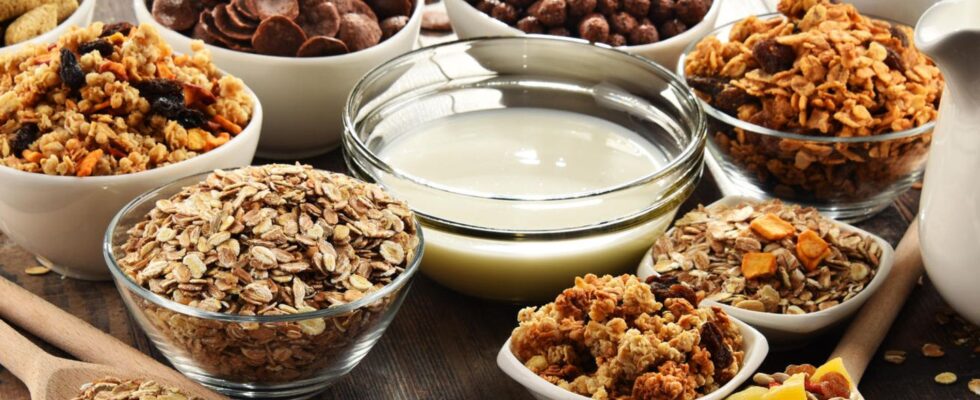Frosties, Smacks and Co.
Stiftung Warentest gets a sugar shock with children’s cereals
© monticellllo / Adobe Stock
Cereals are healthy – people like to claim that. However, Stiftung Warentest can only recommend 24 out of 110 tested.
First of all, there is a good portion of cereals for breakfast – this is an integral part of the morning ritual for many children and continues into adulthood for some people. After all, a muesli bowl can be filled quickly and easily with the contents of one of the colorful packs with the happy animal faces. In contrast, porridge, a spread of bread or a fruit platter tends to be more time consuming to prepare.
As a result, in the morning hours when the children are still sleepy and fussy (like us), we tend to reach for the packet – after all, cereals also have the reputation of being reasonably healthy. But at this point you have to ask yourself several questions: Are Cereals Really Healthy? What is meant by this term anyway? And what does Stiftung Warentest actually say about all the products that advertise with healthy ingredients? Well, we can probably anticipate that: Out of 110 products tested, Warentest can only recommend 24 – i.e. about every fifth variety. Two well-known brands also failed the test.
Why cereals are not inherently healthy
Cereals or breakfast cereals means the entirety of mueslis, cornflakes and other crispy cereal products, according to the website of the Association of Grain Mills and Starch Industry VGMS eV Here, too, a further distinction is made, for example in the “muesli” category between “classic muesli” such as fruit, nut or chocolate muesli or crunchy muesli. Crunchy flakes, rings and pillows fall into the “traditional cereal” category, which includes cereals such as puffed cereals.
Cereals can consist of all sorts of grains, such as wheat, corn, rice, but also millet, oats or rye – just because of the different types, one cannot claim that cereals are fundamentally healthy.
Which products Stiftung Warentest can recommend – and which not
Especially for products that are primarily aimed at children – which include some cereals – there are guidelines for the proportion of sugar and fat. Of the 110 products tested, however, 86 ignored these values. Only 24 products contained “a reasonable amount of sugar” – which sounds anything but reassuring. Especially sweet: Two of Kellogg’s brands (Frosties and Smacks) were one-third sugar.
The few products that Stiftung Warentest was able to recommend are all organic. The crunchy muesli from Lidl, “Crownfield”, deserves a positive mention: it is not only one of the cheaper products in the test, but also one of the healthiest. dmBio also offers a healthy and inexpensive product with the “Children’s Crunchy Muesli”. This shows that the price alone says nothing about the ingredients – and their value for the human body – after all, expensive brands such as Nestlé, Kellogg’s and Denns Biomarkt are among the clear losers in the test.
Sources used: vgms.de, praxistipps.focus.de, test.de, stern.de
